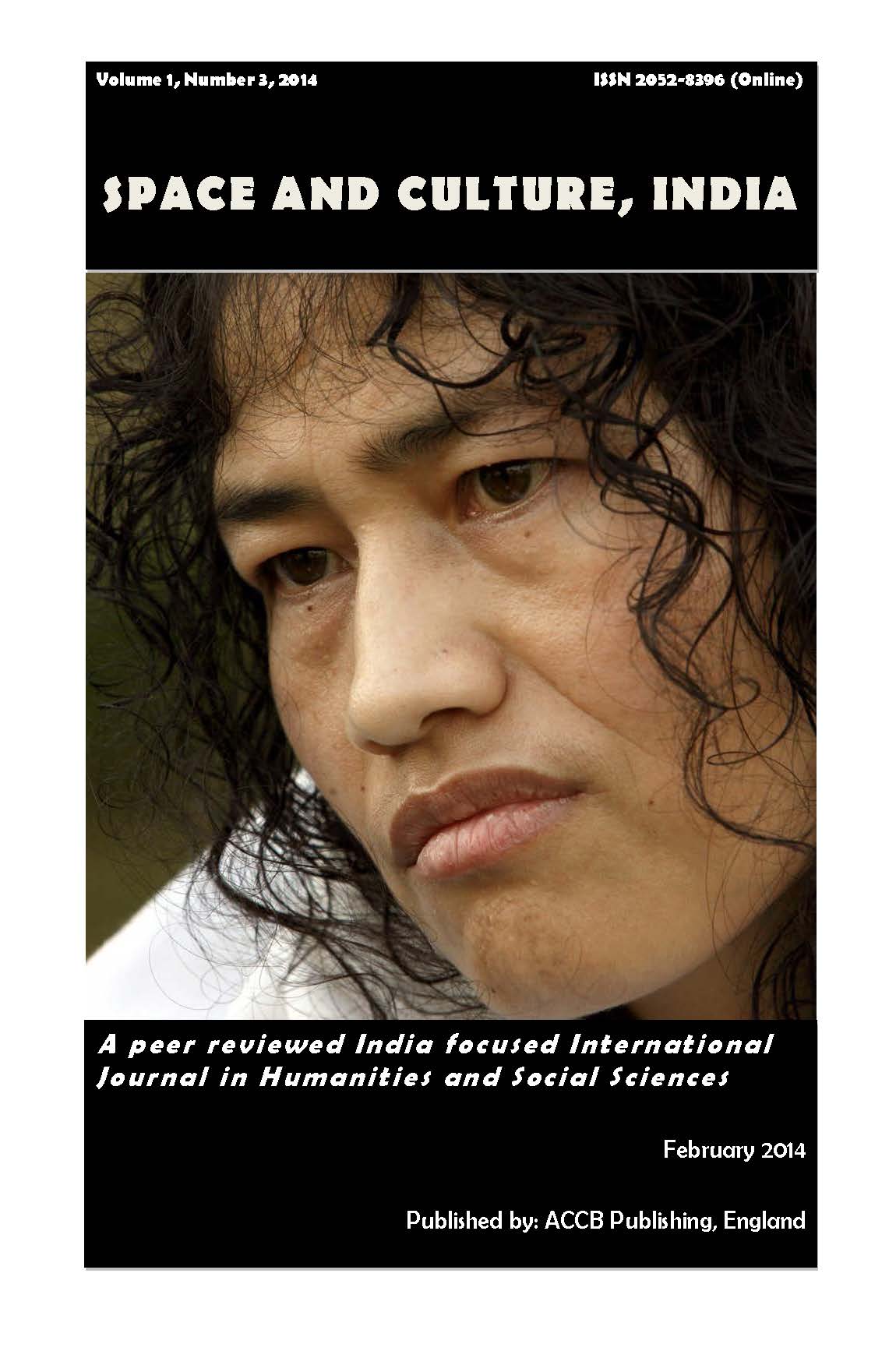Irom Chanu Sharmila and the Movement against Armed Forces Special Powers Act (AFSPA)

Abstract
This paper, through the narratives of activists and Meira Paibis reiterates the slogan—repeal the Armed Forces Special Powers Act (AFSPA), which is draconian and anti-people in spirit. The atroci-ty, which has been meted out on the people of Manipur because of this Act, is a profound violation of human rights. Rape, mindless killings, kidnapping, fake encounters have been normalised by virtue of this Act. The youths have been badly affected due to the conflict emerging out of this Act which treats people in Manipur as ‘objects’ against the imagined boundaries of the Indian nation-state for security from the neighbouring nations. In this process, the lived experiences of the people have been pushed to the periphery against the massive motive of the state to protect bor-ders and the imagined nation, which is a direct offshoot of the legacy of colonialism in India. The paper has tried to capture the history of Manipur on a capsule to concretise the struggle of Irom Sharmila and the ‘hopes’ she gives to the people of Manipur for ‘peace’ and ‘justice’. Alongside, it makes a humble attempt to describe the ‘life’ of Irom Sharmila. In addition, it describes the rage of Manipuris, which have given rise to insurgency asking for ‘freedom’ through various platforms.Keywords
Armed Forces Special Powers Act (AFSPA), Irom Chanu Sharmila, Hope for peace, Meira Paibis, Malom massacre, Manipur, India
Author Biography
Aparajita Sharma
Department of Social Work
References
Bhattacharyya, R. (2013). Criminal Law (Amendment) Act, 2013: Will It Ensure Women’s Safety in Public Spaces? Space and Culture, India, 1 (1), 13-27, (ISSN: 2052-8396)
Calhoun, C. (1995). Critical Social Theory. Blackwell, USA
Cesaire, A. (1972). Coloniailism. Boston: Routledge
Dalton, D. (1993). Mahatma Gandhi: Non Violent Action in Power. USA: Columbia University Press
Desroche, H. (1979). The Sociology of Hope. Boston: Routledge and Kegan Paul
Freire, P (1994). Pedagogy of Hope. New York: Continuum
Giroux (1997). Public Spaces Private Lives: Beyond the Culture of Cynicism. USA: Rowman and Littlefield Publishers
Gramsci, A. (1997). Prison Notebooks, Vol. I and trans. Joseph. A. Buttigieg, Columbia: University Press
Goffman (1949). The Presentation of Self in Everyday Life. Chicago: Anchor Books
Kant, I. (1932). Perpetual Peace: The Book Tree. San Diego
Laishramchan, J. (2014). Which First: Peace or Development? Justice First!, available at: http://e-pao.net/epSubPageExtractor.asp?src=education.Human_Rights_Legal.Which_first_Peace_or_Development_Justice_First (accessed 3 January 2014)
Ningthouja, M. (2004). Freedom from India. Guwahati: Spectrum Publication
Ningthouja, M. (2014). Against Political Terrorism, available at: www.tehelkanews.org (accessed 12 November 2013)
Manipuronline, (2014). History of Manipur, available at: www.manipuronline.org (accessed 12 November 2013)
Mehrotra, D.P (2009). Burning Bright: Irom Sharmila and the Struggle for Peace in Manipur. New Delhi: Penguin Books
Mansfield, J (1990). Beyond Self Interest. Chicago: University Chicago Press
Mclellan, D. (1979). Marxism after Marx. New York: Palgrave Macmillan
Nepram, M. (2014). The History of Meira Paibi, available at: www.e-pao.net (accessed 12 November 2013)
Pulla, V. and Kharel, K.P. (2014). The Carpets and Karma: The Resilient Story of the Tibetan Community in Two Settlements in India and Nepal, Space and Culture, India, 1 (3), 27-42, (ISSN: 2052-8396)
Shilling, C. (1993). The Body and Social Theory. New York: SAGE